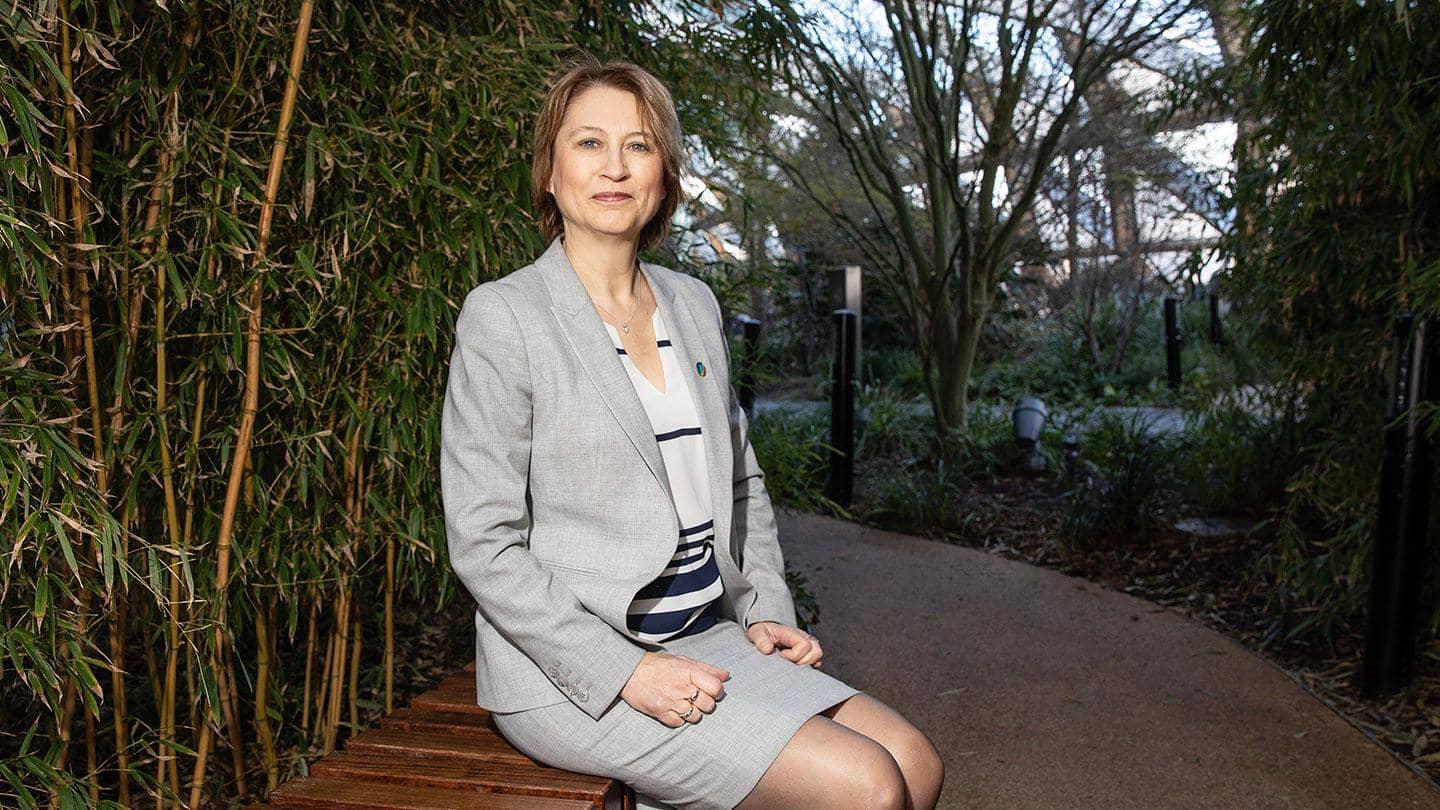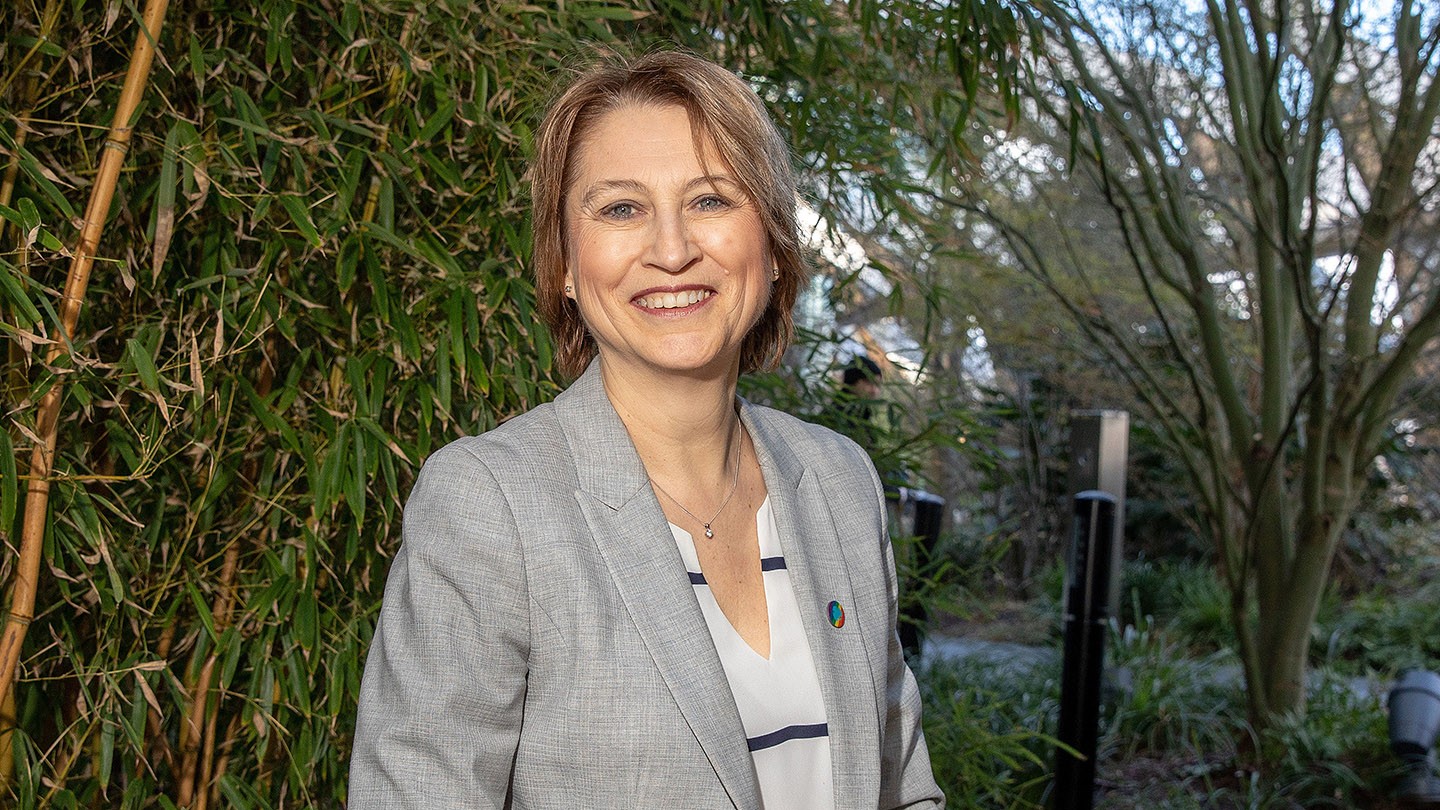
Culture
Why companies can't be "passive" on LGBT+ inclusivity
More than a third of LGBT+ people who are employed in the UK have hidden their identity because they fear discrimination at work. Barclays’ Sue Baines, an OUTstanding LGBT+ Future Leaders Role Model and Co-Chair of the bank’s Spectrum network, shares how the bank is building an inclusive environment that supports colleagues, customers and communities.
“I think corporates have an incredible power to make a difference,” says Sue Baines, Director of Debit Card Optimisation and Growth at Barclays UK and Co-Chair of the bank’s LGBT+ employee network, Spectrum.
“Corporates are made up of people. And creating the right narrative, culture and environment rubs off on the people within the company, who in turn make a difference to the culture and fabric of society. It's important that companies continue to be diverse, inclusive – and not passive.”
When it comes to the LGBT+ community, this emphasis on diversity and inclusion has become even more crucial during the pandemic.
“If you are already in a marginalised group,” says Baines, who this year was named an OUTstanding LGBT+ Future Leaders Role Model, “a global pandemic really doesn't help.”
A UK government survey indicates that, prior to the pandemic, a quarter of LGBT+ people were not open about their identity with family members in their household, and two-thirds avoided holding hands with same-sex partners for fear of a negative reaction. These challenges, says Baines, have been exacerbated by the COVID-19 crisis.
“If you're already bearing a sense of potentially being disconnected from the community around you,” she says, “and then suddenly the law says you're not allowed to leave your home – that sense of isolation just becomes even more profound.”
Research from the LGBT Foundation reflects the impact of the pandemic on people in the UK’s LGBT+ community – including challenges of censorship, dysphoria as gender transitions are delayed, self-isolation in prejudiced households and the “limbo” of lockdown.
Creating the right narrative, culture and environment rubs off on the people within the company, who in turn make a difference to the culture and fabric of society.
Director of Debit Card Optimisation and Growth at Barclays UK and Co-Chair of Spectrum

Sue Baines is Co-Chair of the Barclays’ LGBT+ employee network, Spectrum.
Through the globe’s current “rhetoric of division”, says Baines, “it's really important to ensure that we maintain a dialogue – albeit a virtual one – not only with our colleagues but with the broader community. We need to make sure that the conversation is one of inclusion, and recognising and celebrating difference”.
This includes commemorating occasions like IDAHOBIT, the International Day Against Homophobia, Transphobia and Biphobia. “It’s no coincidence that Mental Health Awareness Week and the International Day Against Homophobia, Transphobia and Biphobia fall around the same time,” says Baines, “as 17 May is the designated day when, in 1990, the World Health Organisation declassified homosexuality as a mental disorder.
“There is clear intersectionality between mental health and sexuality. The pandemic has deepened this crisis for many LGBT+ people, and it is far from over. In the midst of the chaos, heartbreak and ongoing challenges, this year’s IDAHOBIT theme is ‘Together: Resisting, Supporting, Healing!’ – a message of hope for people standing together against discrimination, and in shared support of the LGBT+ community.”
Creating an inclusive work from home environment
Baines acknowledges that keeping that conversation going has been more difficult while many colleagues are working remotely.
“Things like the Barclays rainbow lanyard were so prominent when we were all in the office,” she explains. “Anybody new to the bank could go to their corner of the office, and hopefully see at least one or two colleagues wearing it and know that Barclays is a safe organisation. Without those cues, it becomes really hard.”
Spectrum’s focus has therefore been on ensuring its initiatives fit the ‘new normal’. Recently, this has included adapting classroom-based ally training to work virtually, and encouraging colleagues to include their gender pronouns on email signatures and conference calls. “It's that cue for people,” says Baines, “particularly those who are new to the organisation, to go, ‘Okay, I can see that these people are LGBT+ inclusive’.”
Baines explains that building a truly inclusive environment is crucial to the success of Barclays as a business – particularly when it comes to attracting talent. One new colleague, she says, “positively sought out Barclays” because she had seen the bank regularly appearing in the Stonewall Top 100 Employers list.
“I've been working with the talent team so we're not just attracting people on the basis of career opportunity, but also because Barclays is a diverse and inclusive firm, and therefore a great place to be.”

This year, Baines was named an OUTstanding LGBT+ Future Leaders Role Model.
If you don't have a diverse population of colleagues that look like the customers you want to serve, how can you possibly know whether you're meeting their needs – and whether you can delight and excite them?
Director of Debit Card Optimisation and Growth at Barclays UK and Co-Chair of Spectrum
Beyond the importance of creating a supportive environment for colleagues, there is evidence to suggest that diverse companies are more successful than others, Baines adds.
“If you don't have a diverse population of colleagues that look like the customers you serve,” she says, “how can you possibly know whether you're meeting their needs – and whether you can delight and excite them?”
The “shared goals” helping to bring about real change
Spectrum’s work extends far beyond the bank – from partnering with charities working toward a common goal, to implementing data collection systems that do not discriminate against non-binary customers.
Even the Barclays initiatives not directly focused on LGBT+ support can play a role in supporting people in the community. For example, says Baines, “Our Digital Eagles do an extraordinary amount of work that is helping people become more digitally savvy – but it’s also protecting them from the worst of the digital environment, where so much cyber bullying can happen.”
Meanwhile, colleagues at Barclays Corporate Banking have worked closely with clients like Disney to help them set up their own LGBT+ networks – which in turn helps to strengthen client relations. “It’s now a relationship based on shared goals around LGBT+ diversity and inclusion,” says Baines, “in addition to the more financial aspects of that relationship.”
Looking forward, Baines is keen to ensure that Spectrum takes an intersectional approach. “No one is identified by one characteristic,” she says. “We're all made up of different layers.”
When diversity and inclusion is actively integrated into every aspect of an organisation, says Baines, then real change will be possible.